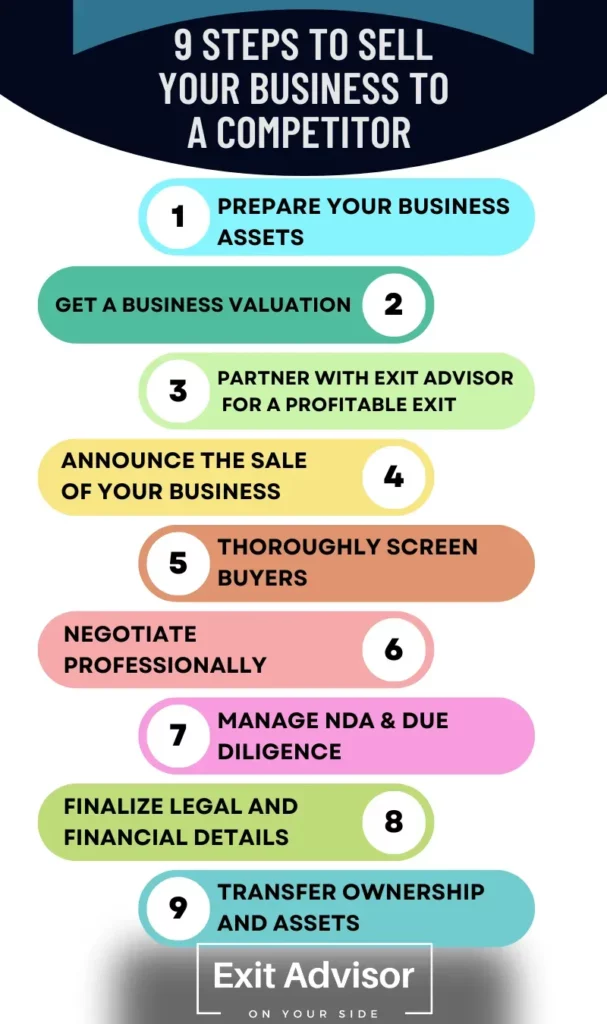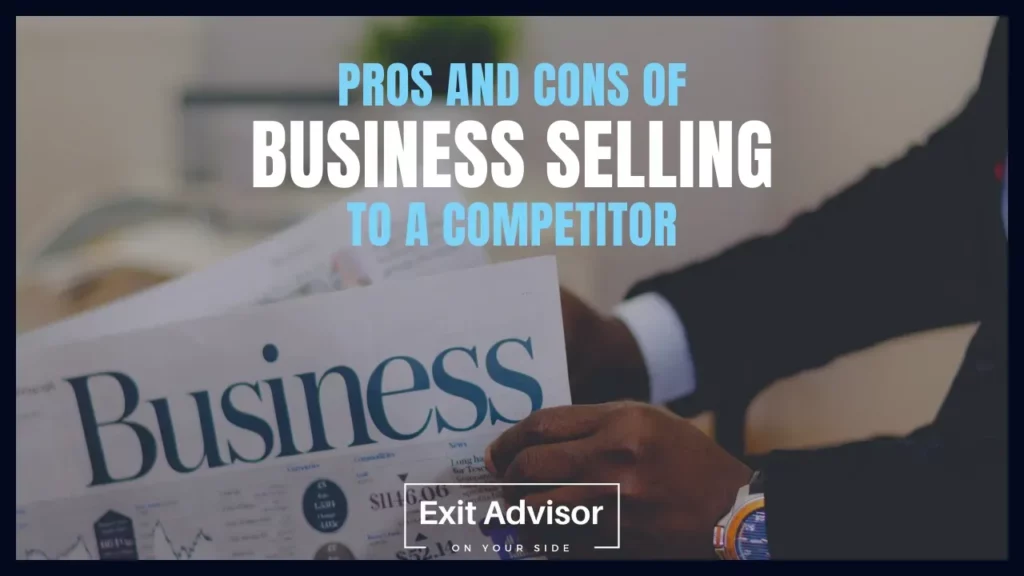How To Sell Your Business To A Competitor

Facing tough competition and considering an exit strategy? Selling your business to a competitor might be your fastest route to a lucrative deal.
This article provides a no-nonsense guide on how to navigate this complex process, ensuring you maximize value and minimize potential pitfalls, based on expert advice and industry best practices.
Is Selling to a Competitor the Right Move?
Before diving in, honestly assess your motivations. Are you aiming for the highest possible price, a quick exit, or a specific legacy for your company?
Selling to a competitor often commands a premium due to synergies and market share consolidation. However, be prepared for potential scrutiny from antitrust regulators, which could delay or even derail the deal.
Step 1: Prepare for Due Diligence
Thorough preparation is paramount. Compile all relevant financial records, customer contracts, intellectual property documentation, and legal agreements.
This data room must be impeccable. Accurate and readily available information accelerates the due diligence process and builds trust with the potential buyer.
Step 2: Value Your Business Realistically
Don't rely solely on gut feeling. Engage a qualified business appraiser to determine the fair market value of your company.
This valuation should consider your assets, earnings, market position, and any intellectual property. Understand your leverage points.
Research comparable transactions in your industry. What multiples of revenue or earnings have similar businesses fetched?
Step 3: Identify Potential Buyers
Target competitors who would benefit most from acquiring your business. Consider their strategic goals, market reach, and existing capabilities.
Start with a discreet outreach. Explore potential interest without revealing confidential information upfront.
Confidentiality is key. Use non-disclosure agreements (NDAs) to protect your sensitive data before sharing any specifics.
Step 4: Negotiate the Terms
Negotiations will be intense. Be prepared to defend your valuation and negotiate key deal terms, including price, payment structure, and closing date.
Consider structuring the deal with an earn-out provision. This allows you to share in the future success of the combined entity, aligning incentives with the buyer.
Seek advice from experienced M&A advisors. They can guide you through the negotiation process and help you secure the best possible outcome.
Step 5: Navigate Regulatory Hurdles
Selling to a competitor often triggers antitrust scrutiny. The Federal Trade Commission (FTC) or the Department of Justice (DOJ) may investigate whether the deal would substantially lessen competition.
Be prepared to provide detailed information about your market share, pricing strategies, and competitive landscape. Hire antitrust counsel to navigate the regulatory process.
Consider offering divestitures to address potential antitrust concerns. Selling off certain assets or business units can sometimes clear the way for the deal to proceed.
Step 6: Due Diligence From The Other Side
Expect thorough examination of everything you said you did, and that you did it properly.
Be transparent and forthcoming with information during this time.
Any inconsistencies could cause the buyer to walk away.
Example: Recent Industry Acquisition
In Q3 2023, Acme Corp, a leading software provider, acquired Beta Solutions, a smaller competitor specializing in cloud-based solutions. The deal, valued at $50 million, allowed Acme Corp to expand its product offerings and gain access to Beta Solutions' customer base.
The acquisition faced regulatory scrutiny but was ultimately approved after Acme Corp agreed to divest a small portion of its existing business. This illustrates the complexities and potential challenges of selling to a competitor.
Potential Pitfalls to Avoid
Underestimating the due diligence process: Thorough preparation is crucial to avoid delays and complications.
Failing to protect confidential information: Use NDAs and limit access to sensitive data.
Ignoring potential antitrust concerns: Seek antitrust counsel early in the process.
Getting emotionally attached: Treat the sale as a business transaction and focus on maximizing value.
Moving Forward
Selling your business to a competitor is a complex but potentially rewarding undertaking. Careful planning, professional advice, and a realistic approach are essential for success.
Consult with legal and financial advisors to determine the best course of action for your specific circumstances. Take each step knowing you're being guided.
The market is constantly shifting, so stay informed and adapt your strategy as needed. The next move is yours.


















